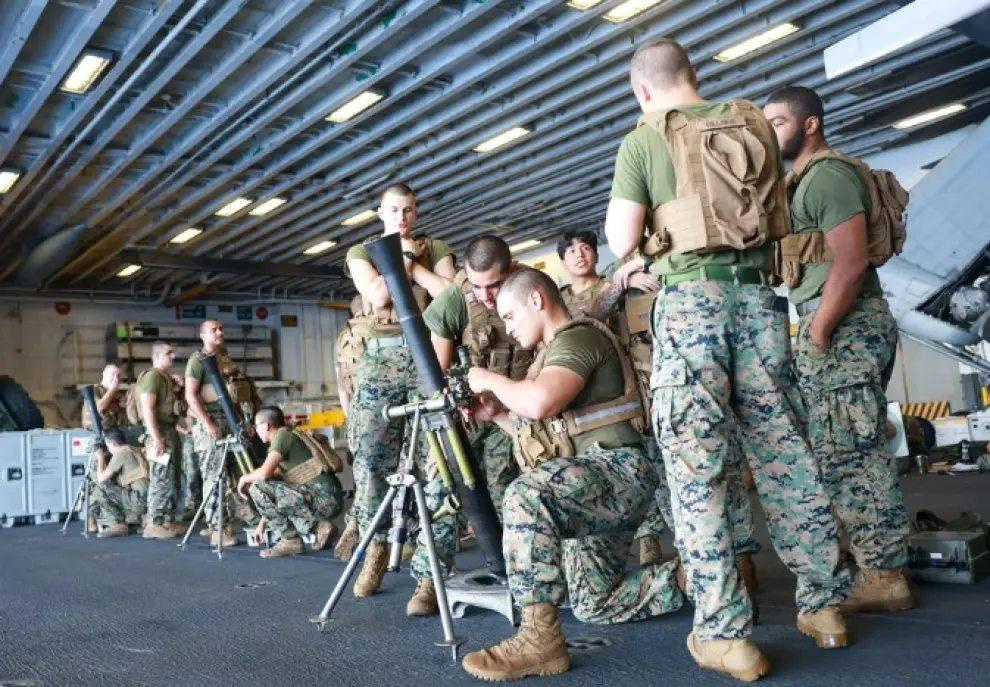If Venezuela falls, the financial source of 21st-century socialism and the island’s economic lifeline will collapse.

![]() 14ymedio, Jorge L. León, Houston (Texas). 29 August 2025 — The chess game of American geopolitics is back in play. Between sanctions, alliances, and veiled threats, the confrontation between the United States and Venezuela is not just a local standoff, but an episode of continental scope. On that board, Cuba appears as both a key piece and, at the same time, the most vulnerable target of a strategy that revives the Monroe Doctrine through the prism of the 21st century.
14ymedio, Jorge L. León, Houston (Texas). 29 August 2025 — The chess game of American geopolitics is back in play. Between sanctions, alliances, and veiled threats, the confrontation between the United States and Venezuela is not just a local standoff, but an episode of continental scope. On that board, Cuba appears as both a key piece and, at the same time, the most vulnerable target of a strategy that revives the Monroe Doctrine through the prism of the 21st century.
I’m no witch doctor when it comes to predicting the future, but I do have a certain sense of smell. And what we’re experiencing today in the confrontation between the United States and Venezuela isn’t an isolated incident: it heralds a highly consequential outcome, not only for Caracas, but for the entire American continent.
The fall of Nicolás Maduro is a matter of time. The path to that end admits two probable routes: an internal breakdown of the regime that would hand over its leader, or a swift surgical removal operation with the help of internal factors. Historical experience shows that Washington has repeatedly used this type of maneuver when its hemispheric interests have been at stake—from Panama in 1989 to covert operations in the Caribbean and Central America.
The Cunning Pressure
What we’re seeing isn’t improvisation, but rather part of a strategy of escalating pressure: financial sanctions, diplomatic isolation, control of supply networks, pursuit of drug trafficking, and, at the same time, the display of U.S. military might as a deterrent.
Trump’s “maximum leverage” doctrine seeks to reduce Maduro’s maneuverability through economic and diplomatic siege
Trump’s “maximum leverage” doctrine—very much in line with Marco Rubio’s vision—seeks to use the economic and diplomatic siege to reduce Maduro’s maneuverability until he is forced to resign. The cleverness of this pressure lies in the fact that, while publicly announcing the desire to avoid open armed conflict, the credible threat of lightning action remains.
According to analyst Michael Shifter, president of the Inter-American Dialogue: “The Maduro regime is supported by an external framework—Russia, China, Iran, Cuba—that shields it. But that network cracks when international pressure is accompanied by fractures within the Armed Forces.”
Russia, China and Iran in the Caribbean
The continent is invaded by powers hostile to Washington. The Venezuelan regime has served as a gateway for them, through lucrative contracts with Moscow and Beijing, which secure strategic resources (gold, oil, and gas) in exchange for political and military support. Iran, for its part, has woven networks of illicit financing and cooperation in intelligence and terrorism.
This scenario makes a 21st-century re-examination of the Monroe Doctrine inevitable. “America for Americans” ceases to be a slogan and becomes a strategic imperative: curbing the influence of external actors seeking to turn the continent into a playground for blackmail and pressure.
The Fall of Venezuela and the Coup Against Cuba
The equation is clear: if Venezuela falls, the financial source of 21st-century socialism will collapse. Cuba, which since the days of Hugo Chávez has turned Caracas into its economic lifeline, will be left unprotected. According to estimates by economist Carmelo Mesa-Lago, the island received more than 35,000 barrels of subsidized oil per day from Venezuela, as well as millions in aid in soft loans and opaque agreements. Without this support, Cuba’s systemic crisis cannot be masked with slogans
The “explosion of democracy” sweeping through Latin America will mean the end of more than six decades of communist control for Cuba.
In fact, Havana knows it is on the brink of a precipice. The repressive apparatus is intensifying because the leadership perceives that a democratic explosion in Venezuela would have an immediate domino effect on the island. The “explosion of democracy” sweeping across Latin America will mean the end of more than six decades of communist control for Cuba.
The Board in Transformation
The red has begun to fade across the continent: Argentina, Ecuador, Bolivia, and now Venezuela itself are putting an end to the project of 21st-century socialism. What’s emerging is a geopolitical realignment where this century’s anti-communism aligns with North American pragmatism: defeating terrorism, cutting off drug trafficking, and blocking the path for Russia, China, and Iran.
On that strategic board, Donald Trump—with all the criticism and controversy he provokes—has set the pieces in motion. And the final checkmate could inevitably be the most severe blow to the Cuban dictatorship.
History teaches us that no regime sustained by repression and external dependence lasts forever. Venezuela sets the pace, but Cuba represents the outcome. The collapse of 21st-century socialism will not only be the fall of an unviable economic model, but also the defeat of an ideological hegemony that has poisoned the region for decades. And in this scenario, US pressure, reinterpreted by Donald Trump, could become the final blow that closes a cycle and opens, with all its tensions and challenges, a new era for the Americas.
Translated by Regina Anavy
____________
COLLABORATE WITH OUR WORK: The 14ymedio team is committed to practicing serious journalism that reflects Cuba’s reality in all its depth. Thank you for joining us on this long journey. We invite you to continue supporting us by becoming a member of 14ymedio now. Together we can continue transforming journalism in Cuba.


